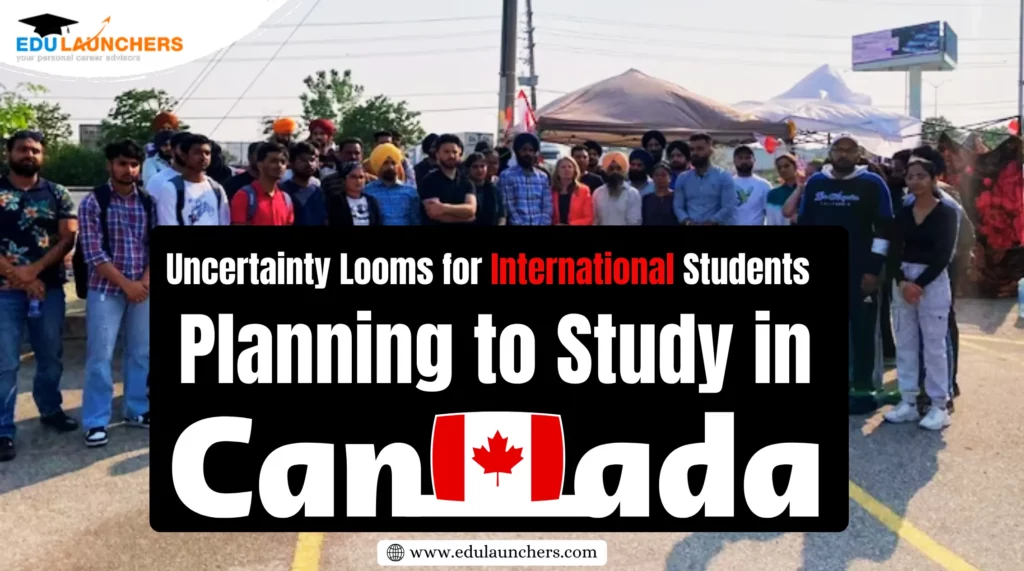A cloud of uncertainty lingers in the heart of Kingston, Ontario, where dreams and aspirations were once nurtured. As diplomatic relations between Canada and India falter, international students, especially those from India, find themselves in uncharted territory. Their tensions are heightened by the ongoing war in Israel and Hamas, which has adversely impacted international students.
India has been a significant source of international students for Canada, with their numbers steadily rising. Yet, as tensions between the two nations escalate, which haunts these ambitious young minds.
Global conflicts have extended their reach in these tumultuous times, affecting students worldwide. As we delve into the complexities of these conflicts and their impact on students, let us explore the emotions and challenges students grapple with.
India- Canada Conflict:
The India-Canada conflict has been growing for several reasons. Firstly, India is worried that Canada is showing sympathy towards a Sikh separatist movement, particularly the Khalistan issue, which has been contentious. On the other hand, Canada accuses Indian officials of meddling in its domestic politics. Tensions increased when Canadian Prime Minister Justin Trudeau alleged that Indian government agents were linked to the assassination of a Sikh separatist leader in British Columbia, a claim strongly denied by India. This led to both countries expelling each other’s diplomats and India suspending visa services in Canada while asking Canada to reduce its number of diplomats in India. These actions have strained their relationship significantly.
Israel-Hamas Conflict:
The ongoing Israel-Hamas conflict has brought more than just headlines and political discussions to campuses. Jewish students worldwide report heightened anxiety due to increased anti-Israel sentiments. The outbreak of war in Tel Aviv and disruptions in commercial flights have raised questions about evacuations, with some students managing to leave for other destinations. The war has sparked tensions on U.S. college campuses, pitting student groups against their university leaders as conflicts between pro-Israeli and pro-Palestinian organizations intensify. Some student groups condemn what they perceive as Israel’s occupation and treatment of Palestinian territories. Additionally, there are concerns about potential anti-Semitic violence, with blame for the conflict placed on Israel by certain student groups. Jewish and Israeli students are reporting fear and distress, with some taking refuge in bomb shelters and others seeing family members called back into the Israeli army.
Universities, meant to be sanctuaries of learning, have become places of unease for students.
Impact on Student Communities:
The responses of student communities to these conflicts have invited scrutiny. Alumni and businesses watch closely, and universities must clarify their positions amidst differing opinions. Some institutions have chosen sides, while others aim to maintain neutrality. Campuses have become testing grounds for conflicting ideals.
Job Loss:
The impact goes beyond emotions, reaching into the professional lives of students. One law student in New York saw his job offer slip away due to an anti-Israel message. The conflict has, unfortunately, shifted from a distant issue to a tangible threat, affecting not just livelihoods but dreams as well.
Amid these conflicts, Indian students in Canada face unique challenges. The Ministry of External Affairs (MEA) has established round-the-clock control rooms in Delhi and emergency helplines in Tel Aviv to support Indian students. However, the situation remains precarious, with the temporary closure of visa services to Canada adding to the complexity.
These global tensions are causing students to reconsider their choices. A survey shows shifting preferences, with Australia gaining popularity alongside Canada as a preferred destination. However, amidst these uncertainties, pursuing quality education and better opportunities remains the driving force for students.
While the world grapples with external conflicts, internal structures supporting international students need attention. The recent revelation of fake admission letters highlights systemic issues that need to be addressed to ensure the welfare of students. Universities like McMaster University have faced their share of controversies. A union representing teaching and research assistants posted comments on social media that raised eyebrows, leading to swift responses from the university.
The next steps:
Amid the escalating tensions between India and Canada and the war in Israel, experts suggest that students skip their admission in Canada in the next summer session- 2024, and opt for winter intake. Students are also advised to engage in open and respectful communication with peers and faculty, which can build understanding and support. Seeking assistance from university services like counselling centres can also provide emotional support and guidance.
Conclusion:
International students in Canada are not mere statistics; they are individuals with dreams that transcend borders and conflicts. It’s our collective responsibility to provide them with support, understanding, and a nurturing environment. As we navigate these challenging times, let’s remember the dreams of these students who continue their pursuit of a brighter future, undeterred by the uncertainties surrounding them.





